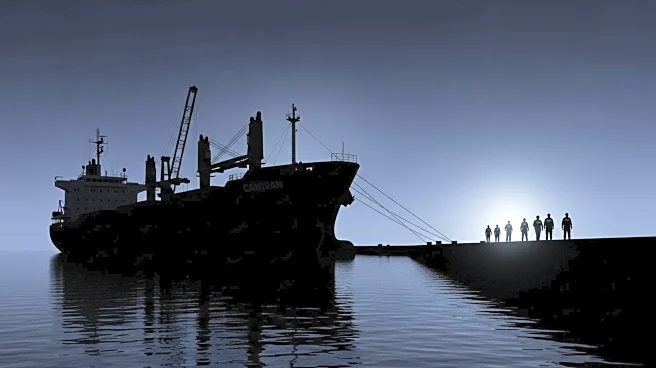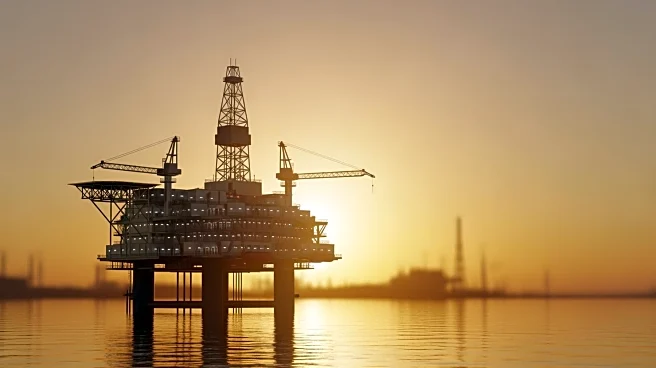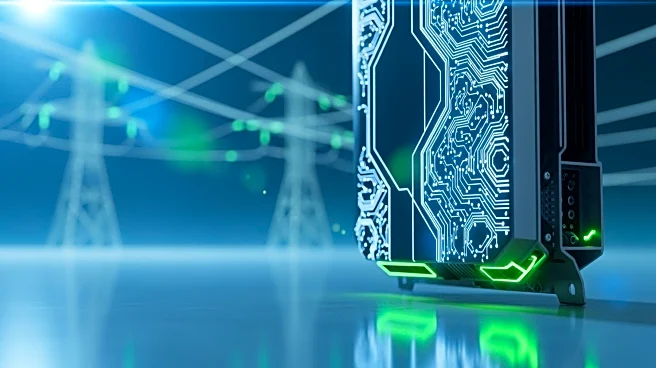What's Happening?
Bulgarian officials have arrested Igor Grechushkin, the owner of the Rhosus, a ship that transported a large quantity of ammonium nitrate to Beirut in 2013. This cargo later exploded in 2020, causing significant destruction and loss of life. The arrest marks a significant development in the investigation, which had been stalled for years due to political interference in Lebanon. The investigation was revitalized in January 2025 under the new Lebanese government, which has empowered Judge Tarek Bitar to pursue justice for the victims of the blast. Grechushkin's arrest is seen as a crucial step in holding those responsible accountable.
Why It's Important?
The arrest of Grechushkin is a pivotal moment in the ongoing investigation into the Beirut explosion, which has been a source of public outrage and political controversy in Lebanon. The explosion highlighted systemic issues within Lebanon's political and judicial systems, where powerful figures have been accused of obstructing justice. The renewed investigation under the new government reflects a commitment to addressing these issues and seeking accountability. This development could have broader implications for international maritime regulations and the handling of hazardous materials, potentially influencing policy changes to prevent similar incidents in the future.
What's Next?
The investigation is expected to continue with a focus on uncovering the full extent of the negligence and corruption that led to the explosion. The Lebanese government may face pressure to expedite legal proceedings and ensure transparency in the investigation. International observers and human rights organizations are likely to monitor the situation closely, advocating for justice for the victims. The outcome of this investigation could set a precedent for how similar cases are handled globally, particularly in terms of holding individuals and entities accountable for negligence and regulatory failures.









